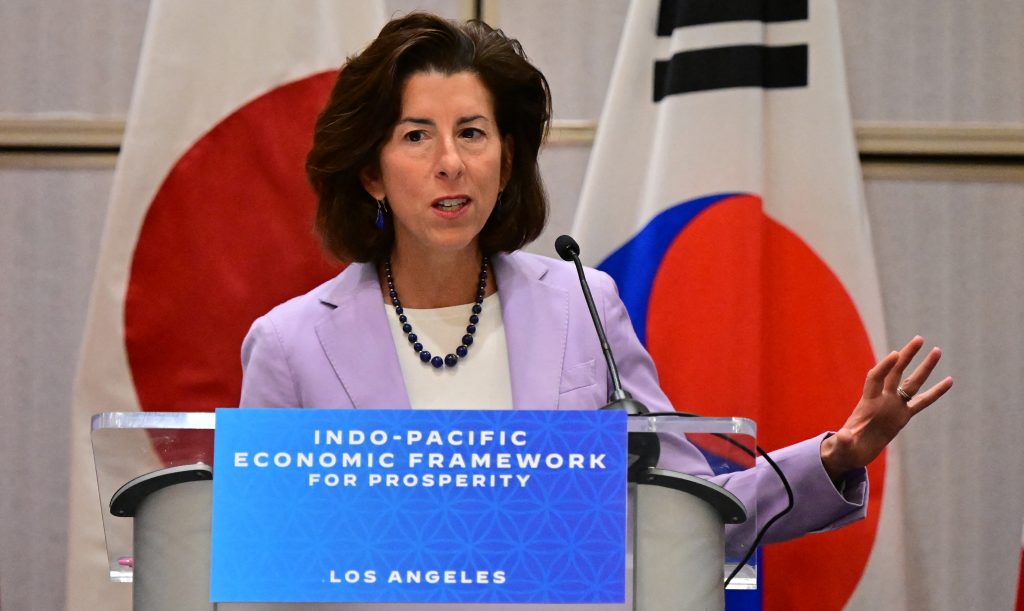
- ARAB NEWS
- 30 Jul 2025

Japan, the United States and 12 other countries agreed at a two-day ministerial meeting through Friday to start formal negotiations under the U.S.-led Indo-Pacific Economic Framework.
The move is aimed primarily at strengthening supply chains for semiconductors amid the growing significance of economic security against a backdrop of the U.S.-China rivalry.
Since the new framework was launched when U.S. President Joe Biden visited Japan in May this year, ministers from the 14 participating countries had a meeting for the first time.
At the meeting, the ministers adopted joint statements on the fields of trade, supply chain, clean economy and fair economy.
“We’ll make efforts to create a free and fair economic order,” Japanese Economy, Trade and Industry Minister Yasutoshi Nishimura said after the meeting, indicating that Japan and the United States will lead the making of new rules based on democratic values.
U.S. Secretary of Commerce Gina Raimondo, who chaired the ministerial meeting, told a press conference that there was a consensus that the new framework may achieve a result in the supply chain field soon, based on lessens from the COVID-19 pandemic and Russia’s invasion of Ukraine.
The United States appears eager to produce certain achievements under the framework by the time when the Asia-Pacific Economic Cooperation forum holds a summit in autumn 2023. The United States will assume the APEC presidency for 2023.
In the supply chain field, the IPEF countries will work to develop an information-sharing scheme and alternative procurement options and to diversify production bases, in order to reduce their dependence on China and Russia, which are using semiconductors, mineral resources and food as tools to add pressure on trade partners.
In the clean economy field, they will accelerate decarbonization efforts in the fight against climate change.
In the fair economy field, they aim for a system to prevent double taxation on companies, as well as corruption.
The new framework allows its member countries to select from the four fields to participate in. Among the 14 member countries, India will not join talks on the trade field, which includes digital economy, as the country has strict restrictions on cross-border data transfer. The other three fields will see participation by all the 14 countries.
The IPEF countries, also including South Korea, Australia, New Zealand, Fiji, Indonesia, Thailand, Malaysia, Singapore, the Philippines, Vietnam and Brunei, account for about 40 pct of the world’s gross domestic product.
JIJI Press